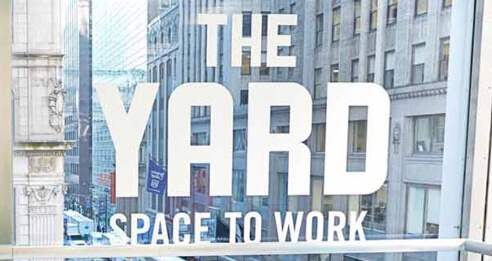
Largest Coworking Companies


Coworking spaces are a recent paradigm but they are growing a large number of proponents. Of which, a vast majority are freelancers. Because this is a relatively new phenomenon, many coworking spaces do fail to accommodate their customers properly.
It is intuitive that any business strives to satisfy its customers. Having a target audience of hardworking entrepreneurs and digital nomads who need the most productive work spaces, coworking spaces need to be careful in meeting their needs. In this article, we’ve compiled a set of red flags that you should take note.
Bad internet does make people go mad very quickly. There’s nothing worse than needing to consult a source on the web while working on an article, a line of code, or what have you, and not be able to load even a cached version of the site.
Not only does that irritate people, but it also gets them out of flow state, when they’re at the peak of their productivity.
If the coworking space has just one Wi-Fi network — that’s pretty problematic. This poses a risk to the entire group of people working there since if something goes wrong with the router, the entire coworking space is doomed to miss hours of work, calls with clients, and money lost.
“While having problems with your internet may be really cool on a Friday afternoon, at the end of your shift if you work in a regular office, since you’re on a salary anyway, the vast majority of people using a coworking are either freelancers paid per hour or entrepreneurs. They might not appreciate a power or internet outage at all.” — Chelsea Ann Dowdell, Marketing Specialist at Rewarded Essays.
The moral of the story is: a coworking space should have at least two working internet connections, and you have to seriously consider this when looking for a good working environment.
Having a person manage the community of workers in a coworking space is absolutely imperative. Having a space manager who tends to your needs and creates opportunities to network between members is what makes coworking more attractive than a normal office in the first place.
The first thing that people look at when entering a coworking space is their furniture — predominantly their chairs. This is the piece of furniture you’ll be interacting with 90% of the time. If the place doesn’t have suitable stools and high-backs, it might be problematic.
“Your productivity directly depends on your comfort, and if back pain starts slowly creeping in after two hours of work — you might want to find a better chair or a better coworking space,” says Ethan Dunwill, Social Media Manager at Hot Essay Service.
Just as bad chairs can hinder your productivity, poorly designed tables that aren’t made for long working hours can force you into a weird posture, which in effect, will make you tired in an hour or so.
So you enter the coworking space, and you’re not a table aficionado. How do you figure out whether the desk is going to be problematic for you? Here’s a list of things any coworking space desk should be:
There are many people that prefer to work in silence. Chatter in itself is distracting to the brain. While people can handle background noise, our brains are hardwired to extract information from its surroundings — this is why words simply inject meaning into our brains, and distract us from what we’re doing if the chatter is constant.
There should be a separation between places which are meant to be silent and the ones that provide with a more chatty environment. Ideally, you’d expect to have these three:
If a coworking cannot accommodate for these needs, it is most probably the case that people often bother each other and can’t have conversations over Skype.
Few things are as annoying as having someone eat a smelly dish in a closed room with 8 people in it. One person’s lack of etiquette and common sense shouldn’t be something coworkers should be dealing with. The coworking place must either allocate a special cafe area, where people can take their meals and work if they wish.
“If you care about your coffee, it’s essential to order a double espresso first thing after you’ve had a tour of the place. Your performance and wellbeing partly depend on this drink.” — Neightan White, Senior Writer and coffee drinker at Supreme Dissertations.
Every person is different, and their demands are often different. However, when most of these demands aren’t met, it’s safe to say that the general client satisfaction in a coworking place is really low. Be demanding about the places you work in, because they partly define your performance and success.
Bridgette Hernandez has her Masters in Anthropology with an interest in writing, planning to publish her own book in the near future. She is well-versed in presenting text in a creative and understandable manner. Currently a regular contributor at Is Accurate, her writing is well-researched and informative.
Save your community manager 41 hours each week—learn how The Yard did it with cloud-based access control.
Read the Case StudyThe Guide to Make Your Space More Profitable
Including interviews with experts and consultants.
Free access to our best guides, industry insights and more.
